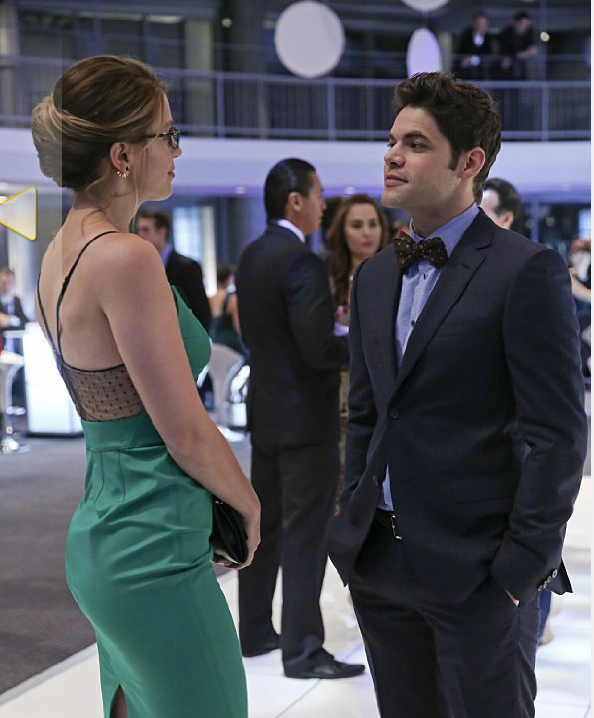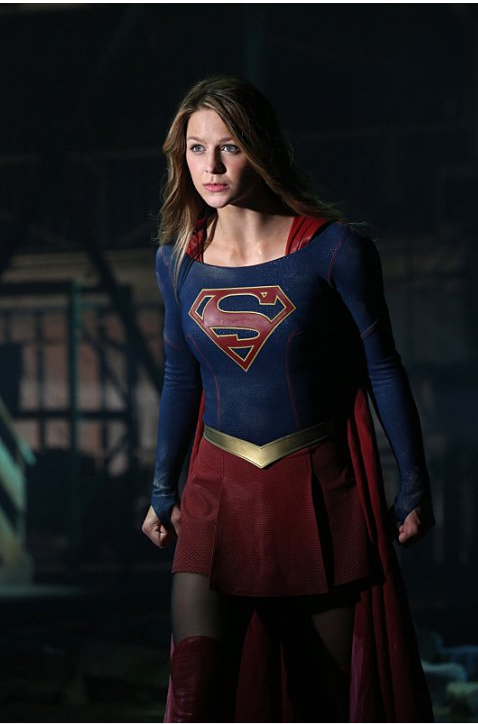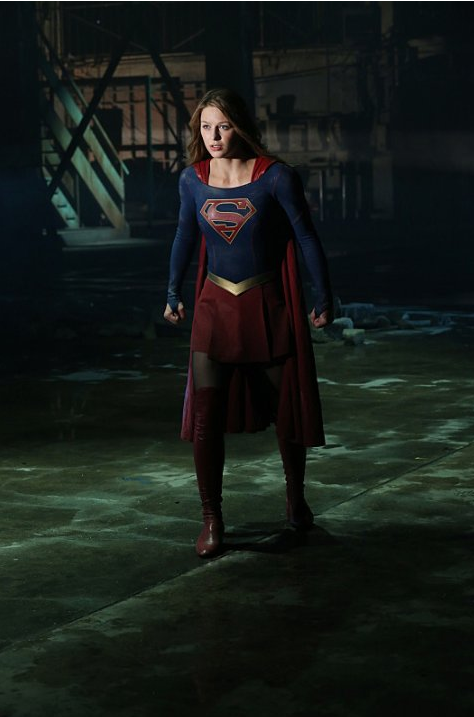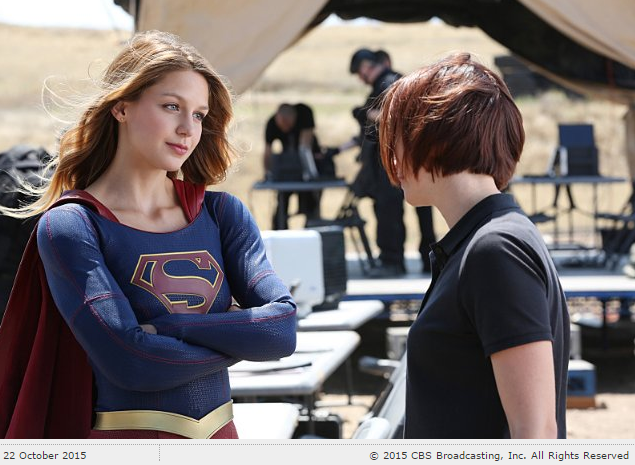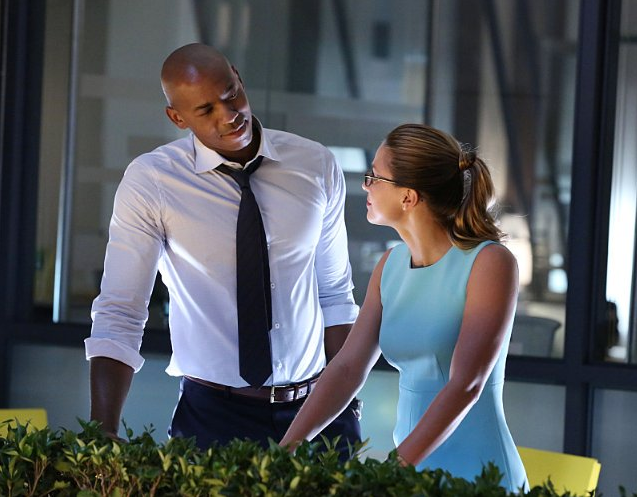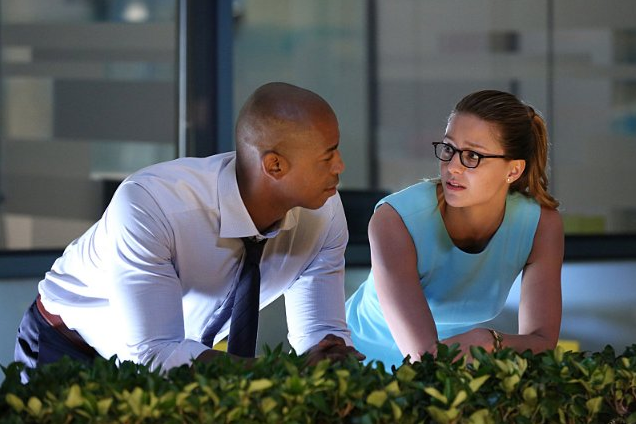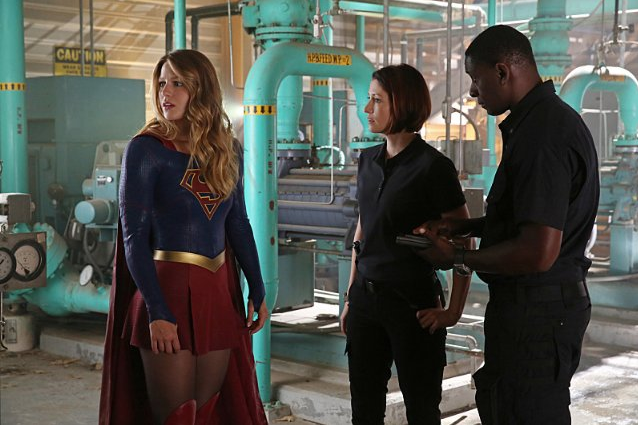The Film Society of Lincoln Center announced today the details for Lynch/Rivette, December 11-22. Jacques Rivette and David Lynch rank among the most revered and enigmatic filmmakers of the past 50 years, uncompromising iconoclasts with sui generis sensibilities and devoted cult followings. On the occasion of the publication of Dennis Lim’s new book David Lynch: The Man from Another Place, the Film Society presents this dual retrospective, revealing the profound affinities and eerie correspondences between the dark, sometimes mystical, always fascinating visions of these two modern masters.
The seven pairings include Rivette’s Celine and Julie Go Boating with Lynch’s Mulholland Drive, L’amour fou with Wild at Heart, The Duchess of Langeais with Blue Velvet, and many more. Some of the couplings are premised on thematic similarities; others on tonal kinships. Each is a suggestive double bill that might allow us to see these films, and perhaps reality itself, anew.
Rivette’s career began as an offshoot from his film criticism of the 1950s and ’60s for Cahiers du Cinéma, where he was a colleague of Truffaut, Godard, and Rohmer, and an omnivorous cinephile; Lynch’s originated in the post-industrial doom and gloom of late-’60s Philadelphia, where he transitioned to filmmaking from painting and sculpture. Rivette eventually found himself working on a grander scale and with some of the most lauded French actors of the post–New Wave period on films renowned for their singular atmospheres, radical use of improvisation, and marathon running times. The success of Lynch’s landmark midnight movie Eraserhead (1977) launched his improbable, up-and-down career, which saw him enshrined as a central figure in American pop culture, influential yet inimitable, with an instantly identifiable if often hard-to-define signature.
Despite these vastly different artistic contexts and trajectories, both filmmakers share a number of pet themes that they have revisited obsessively: secrets, conspiracies, and paranoia; women in trouble; the supernatural manifesting itself within the everyday; the nature of performance and the stage as an arena for transformation; the uncanny sense of narrative as a puzzle without a solution, a force with a life of its own. Their best films act as spells, capable of overcoming characters and viewers alike. They conjure distinctive worlds in which the truth remains unknowable, nightmares masquerade as harmless reveries, and characters change identities amid impossible, self-consciously filmic situations.
Lynch/Rivette coincides with the release of Film Society Director of Programming Dennis Lim’s new book David Lynch: The Man from Another Place (out November 3 through Amazon Publishing/New Harvest and on sale at the Film Society Merchandise Shop), wherein he proposes several lenses through which to view pop culture icon, cult figure, film industry outsider, and master filmmaker Lynch and his distinctive body of work.
Programmed by Dennis Lim and Dan Sullivan.
Tickets will go on sale Tuesday, November 24 and are $14; $11 for students and seniors (62+); and $9 for Film Society members. Make it a Lynch/Rivette double feature and save with our 2-film discount package. Visit filmlinc.org for more information.
Acknowledgments:
British Film Institute; Institut Francais; Cultural Services of the French Embassy; Veronique Manniez-Rivette; David Lynch.
Films, Descriptions, & Schedule
Blue Velvet + The Duchess of Langeais
Young men (Kyle MacLachlan in Blue Velvet and Guillaume Depardieu in The Duchess of Langeais) return home and seek to play hero by redeeming mysterious, troubled women, but their nocturnal visits prove that they’ve bitten off much more than they can chew...
Blue Velvet
David Lynch, USA, 1986, 35mm, 120m
After the failure of the epic sci-fi Dune that nearly ended Lynch’s career, he resolved to make a personal film, and ultimately settled on what would become his undisputed masterpiece of the 1980s, Blue Velvet. After finding a severed human ear in a field, Jeffrey Beaumont (Kyle MacLachlan) discovers, beneath his idyllic suburban hometown, a sinister underworld inhabited by damaged mystery lady Dorothy Vallens (Isabella Rossellini) and her sadistic captor, Frank Booth (Dennis Hopper). The intense color palette, lush Old Hollywood orchestral score, and anachronistic flourishes inch Blue Velvet just past the realm of realism into a space without signposts that gets more disorienting the longer you stay in it. Upon its release, Blue Velvet became an instant cult film and, as more people saw it, a lightning rod for polarized reactions.
Friday, December 11, 6:30pm (Followed by a reception for all ticket holders)
Wednesday, December 16, 2:30pm
The Duchess of Langeais / Ne touchez pas la hache
Jacques Rivette, France/Italy, 2007, 35mm, 137m
French and Spanish with English subtitles
Rivette’s adaptation of Balzac’s novella (contained in his History of the Thirteen, which figured centrally in Rivette’s earlier Out 1) is a costume drama unlike any other, a playful yet moody meditation on the maddening games bound up in courtship. General Armand de Montriveau (Guillaume Depardieu), having returned from the Napoleonic Wars with a limp and a brooding demeanor, quickly becomes enamored of the Duchess Antoinette de Langeais (Jeanne Balibar, hypnotic in her elusiveness and capriciousness). But across a series of nocturnal, candle-lit visitations, the Duchess mercilessly toys with her hot-tempered suitor, as the machinations of a shadowy conspiracy unfold in the background… An absorbing exploration of the selfish passions and competing agendas rumbling beneath the surface of social gentility.
Friday, December 11, 3:30pm & 9:00pm
Celine and Julie Go Boating + Mulholland Drive
Phantom Ladies! Celine and Julie (Juliet Berto and Dominique Labourier) find themselves embroiled in a Henry James–esque plot laden with intrigues as the line between fiction and reality is obliterated. And starry-eyed actress Betty and amnesiac-in-trouble Rita (Naomi Watts and Laura Harring) are caught in a foreboding web of conspiracy that grows more obscure as the real slips into an abyss of Hollywood glitz and gloom.
Celine and Julie Go Boating / Celine et Julie vont en bateau
Jacques Rivette, France, 1974, 35mm, 192m
French with English subtitles
Widely considered Rivette’s crowning achievement, Celine and Julie Go Boating remains perhaps his most enveloping work, a film replete with stories within stories, performances within performances, and the sense of formal gamesmanship present throughout his oeuvre. Eccentric magician Celine (Juliet Berto) meets cute with curious librarian Julie (Dominique Labourier), and their fast friendship sends them down the rabbit hole and into an apparently haunted house. With the aid of magical candy (part acid tab, part Proustian madeleine), they return time and again to the mansion to spy on and eventually play parts in a gothic murder mystery. Co-written by Eduardo de Gregorio and the film’s actresses (including Bulle Ogier and Marie-France Pisier), Celine and Julie Go Boating remains Rivette’s most enduring and influential investigation of the porous boundary between life and art. An NYFF12 selection.
Saturday, December 19, 4:45pm
Monday, December 21, 7:00pm
Mulholland Drive
David Lynch, USA, 2001, 35mm, 147m
Lynch’s ninth feature, widely considered the masterpiece of his late career despite its evolution from an aborted TV pilot, takes its name from the storied Los Angeles road and weaves its plot around the city’s signature industry: motion pictures. Blonde Betty Elms (Naomi Watts in her breakthrough performance) arrives in Hollywood to become a movie star and meets an enigmatic amnesiac brunette (Laura Harring). Around this deepening friendship, Lynch builds a unique puzzle movie, steeped in the romance and artifice of a bygone Hollywood. Lynch’s most favorably reviewed film since Blue Velvet earned him an Academy Award nomination for Best Director and landed atop many best-of-the-decade lists. It remains the ultimate expression of Lynch’s deep love-hate relationship with Hollywood. An NYFF39 selection.
Saturday, December 19, 9:00pm
Monday, December 21, 4:00pm
Duelle + Lost Highway
Two dark head movies in which reality turns itself inside out to startling effect. The nightmarish Lost Highway toys with the concept of identity through a bifurcated plot of murderous jealousy and terrifying surveillance, while in the dreamy noir of Duelle, goddesses do battle in an eerily vacant Paris for the right to remain among mortals.
Duelle
Jacques Rivette, France, 1976, 35mm, 120m
French with English subtitles
The first completed episode of Rivette’s planned but never finished tetralogy “Les Filles de feu” (which he later renamed “Scenes de la vie parallele,” and revisited decades later with Story of Marie and Julien), finds the realm of the spirits encroaching upon and transforming reality. Locked in a duel for control of a magical diamond that will enable them to remain on Earth, sun goddess Viva (Bulle Ogier) and moon goddess Leni (Juliet Berto) lock horns in an eerily vacant and uncannily stylized Paris, conscribing a group of mere mortals in the process. Equal parts film noir and avant-garde myth, Duelle inhabits a space between the material and supernatural worlds, and conveys a paradoxical sense that anything can happen and that everything is determined by forces beyond our control and comprehension. No Rivette film has plunged so deliriously into dream logic, and the results are never less than entrancing. An NYFF14 selection.
Friday, December 18, 9:15pm
Lost Highway
David Lynch, USA, 1997, 35mm, 134m
Most of Lynch’s later films straddle (at least) two realities, and their most ominous moments arise from a dawning awareness that one world is about to cede to another. In Lost Highway, we are introduced to brooding jazz saxophonist Fred Madison (Bill Pullman) while he lives in a simmering state of jealousy with his listless and possibly unfaithful wife Renee (Patricia Arquette). About one hour in, a rupture fundamentally alters the narrative logic of the film and the world itself becomes a nightmare embodiment of a consciousness out of control. Lost Highway marked a return from the wilderness for Lynch and the arrival of his more radical expressionism—alternating omnipresent darkness with overexposed whiteouts, dead air with the belligerent soundtrack assault of metal-industrial bands, and the tactile sensations that everything is happening with the infinite delusions of schizophrenic thought.
Friday, December 18, 6:30pm
Sunday, December 20, 2:00pm
Eraserhead + Paris Belongs to Us
Rivette and Lynch’s feature debuts established many of their signature themes and motifs. Eraserhead, the milestone midnight movie that made Lynch’s name, envisions downtown Los Angeles as a stark, expressionistic site of urban derangement, while Paris Belongs to Us transforms the streets (and rooftops) of Paris into a playground (or battleground) for the type of conspiracy plot that would become a Rivette trademark.
Eraserhead
David Lynch, USA, 1977, 35mm, 89m
Sporadically filmed over five years in Los Angeles’s depopulated downtown and on painstakingly fabricated sets, Lynch’s 1977 debut feature nonetheless bears the imprint of his time as a young artist in Philadelphia. The film follows the hapless protagonist, Henry (Jack Nance), with his furrowed brow and electroshock pompadour, navigates an inhospitable nocturnal landscape and struggles with the anxiety of fatherhood. With its meticulous black-and-white cinematography by Frederick Elmes and Herbert Cardwell and groundbreaking sound design by Alan Splet, Eraserhead is a triumph of interiority, a literal head movie that might be taking place within someone’s traumatized skull, and one of the definitive midnight movies of all time.
Tuesday, December 15, 9:15pm
Paris Belongs to Us / Paris nous appartient
Jacques Rivette, France, 1961, 35mm, 140m
French with English subtitles
Wasting no time in establishing the ideas and moods that would concern him for the rest of his career, Rivette’s feature-length debut is an unnerving tone-poem of Parisian paranoia. A young student, Anne (Betty Schneider), immerses herself in a small network of bohemians by way of her brother Pierre and becomes involved with theatrical producer Gerard, who is staging Shakespeare’s Pericles. But it’s not long before her life falls under the shadow of a devious and powerful—though perhaps nonexistent?—conspiracy, as the film mutates into treatise on art and madness in the City of Light, by turns claustrophobic and agoraphobic. The economic constraints of the production lend this sprawling debut a scrappy energy, and the resulting work, as with so many of Rivette’s subsequent films, find the anxieties and terrors of a vintage noir thriller hiding in plain sight amid the urban everyday.
Tuesday, December 15, 6:30pm
Friday, December 18, 3:30pm
Inland Empire + Story of Marie and Julien
Late career masterpieces: Inland Empire is a digressive, uncategorizable Russian Doll of a film, a dread-laden walk through the night and across cinematic worlds within worlds; Story of Marie and Julien is a labyrinthine ghost story that unearths a realm of spirits within a tragic romance.
Inland Empire
David Lynch, USA, 2006, 35mm, 180m
Written one scene at a time and shot piecemeal over a period of three years on a consumer-grade digital-video camera, Inland Empire is a work shaped by the conditions of its creation. The film, filled with disparate segments and parallel worlds, begins when actress Nikki Grace (Laura Dern), in her cavernous Hollywood mansion, receives a visit from a new neighbor (Grace Zabriskie) who foretells the film’s grave, free-falling identity crisis to follow. Inland Empire oozes, miasma-like, across continents—one minute we are in sunny California, the next in snowy Old World Poland—awash with the narrow range of colors and murky contrast of digital video. Some have read Lynch’s tenth feature as a companion piece to Mulholland Drive, but in truth it is a singular and immersive work that sustains and amplifies the Lynchian sensation of dread to proportions never before felt. An NYFF42 selection.
Sunday, December 20, 5:00pm
Story of Marie and Julien / Histoire de Marie et Julien
Jacques Rivette, France, 2003, 35mm, 151m
French with English subtitles
Rivette returns to the “Scenes de la vie parallele” cycle with this moody, surprising, and, ultimately, supernatural love story. Solitary clockmaker Julien (Jerzy Radziwilowicz) is blackmailing a counterfeiter of antique Chinese silks, but his sordid plot is complicated by the sudden appearance of Marie (Emmanuelle Béart), a mysterious woman who bears a strong resemblance to one of his former lovers. They begin a passionate romance, but a sequence of curious, otherworldly events suggests that things aren’t what they seem, and that everything in Julien’s life is connected in ways that exceed the bounds of rational explanation… An erotic and formally audacious take on the ghost story, Story of Marie and Julien is a sublime and moving work that explores fantasy and the body in equal measure to ecstatic, haunting effect.
Sunday, December 20, 9:00pm
Tuesday, December 22, 4:00pm
L’amour fou + Wild at Heart
Two twisted takes on love: in L’amour fou, an intense relationship (between Jean-Pierre Kalfon and Bulle Ogier) unravels in spectacular fashion backstage and behind closed doors amid a wrought theatrical production; in Wild at Heart, the passionate romance between Lula (Laura Dern) and Sailor (Nicholas Cage) burns bright and surrealistically on the open road.
L’amour fou
Jacques Rivette, France, 1969, 35mm, 250m
French with English subtitles
A stage work forms while a marriage collapses in one of the most remarkable of Rivette’s many explorations of the intersection of life and art. Shooting in a dazzling mixture of 35mm and 16mm film stocks, Rivette cuts between an experimental theater company’s rehearsals for a production of Racine’s Andromaque, a television crew shooting a documentary of the performance, and the imploding relationship of the director Sebastian (Jean-Pierre Kalfon) and his actress wife Claire (Bulle Ogier). Gradually, Sebastian and Claire pull each other deeper into a violent emotional vortex until, in the film’s startling, hour-long pièce de résistance, they lock themselves inside their apartment and embark on what the critic Tom Milne termed “a veritable orgy of passion which can be called neither love nor hate.” An NYFF6 selection.
Sunday, December 13, 3:00pm
Thursday, December 17, 2:00pm
Wild at Heart
David Lynch, USA, 1990, 35mm, 124m
With its good and wicked witches, and references to Toto and the yellow brick road, Wild at Heart (based on Bay Area writer Barry Gifford’s homonymous novel) is an overt, elaborate homage to The Wizard of Oz, a “road movie” before the term existed. Lula (Laura Dern) and Sailor (Nicolas Cage) set out from Cape Fear, North Carolina, in a Ford Thunderbird, headed for the obligatory Oz of California but end up detained in the Texas hellhole of Big Tuna. In many ways conceived in direct opposition to Blue Velvet, the film is anxious and scattered where the earlier film was contained and claustrophobic; where sex in Blue Velvet is wrapped up in guilt and terror, this film is as close as Lynch has come to a celebration of libidinal energies. Winner of the Palme d’Or at the 1990 Cannes Film Festival, Wild at Heart is Lynch’s first all-out comedy, but despite the prevailing tone of aggressive absurdity, it nonetheless contains some of the filmmaker’s most harrowing scenes.
Sunday, December 13, 8:15pm
Tuesday, December 15, 4:00pm
Twin Peaks: Fire Walk with Me + Joan the Maid
Joan of Arc and Laura Palmer: the former is the most filmed saint, the latter became one of the defining saints of American pop culture when she appeared, dead and wrapped in plastic, in the pilot of Twin Peaks. Both works install their martyred female protagonists as the mythological centers of universes defined by emotion and fatalism.
Joan the Maid: The Battles / Jeanne la Pucelle I - Les batailles
Jacques Rivette, France, 1994, 35mm, 160m
French with English subtitles
Sandrine Bonnaire turns in what might be a career-best performance as the titular saint in the first part of Rivette’s materialist take on Saint Joan. Focusing on its heroine’s religious fervor and its psychological foundation, The Battles follows Jeanne as she leads troops into battle in Domremy and Orleans to reclaim the crown of the deposed Dauphin. Bonnaire plays the young Jeanne as zealous and unflappable, and Rivette’s locates her historical significance within the quotidian details of her time. Declining to depict her divine visions, Rivette instead trains his focus on clanking suits of armor, the ruffling of burlap, the ground crunching beneath her boot, soldiers idly sitting around waiting for the fight to come.
Saturday, December 12, 2:00pm
Joan the Maid: The Prisons / Jeanne la Pucelle II - Les prisons
Jacques Rivette, France, 1994, 35mm, 176m
French with English subtitles
Rivette provocatively refuses to stage the oft-filmed trial of Saint Joan in the second part of his epic biopic, instead chronicling Jeanne’s imprisonment and interrogation by the British, culminating in her burning at the stake. The Prisons tracks the fatigue and demolition of the soul that Jeanne endures in prison while also capturing the political machinations unfolding in the background. A hypnotic and moving work, The Prisons wholly involves the spectator in every detail of the road to Jeanne’s saintly fate, tracing a heartbreaking analogy between her persecution and her refusal to accept the role assigned to her by the powers that be. The film’s devastating conclusion confirms Bonnaire’s Jeanne as one of Rivette’s noblest, most resilient and complex heroines in an oeuvre filled with them.
Saturday, December 12, 5:30pm
Twin Peaks: Fire Walk with Me
David Lynch, USA, 1992, 35mm, 134m
Lynch’s harrowing attempt to close the book on both his signature series and arguably his most memorable and tragic character. A prequel to the television phenomenon surrounding the mysterious death of a 17-year-old homecoming queen, Twin Peaks: Fire Walk with Me plunges into the show’s dark heart and defining trauma, chronicling the final week in the brief life of Laura Palmer (Sheryl Lee)—a film predestined to end with the death of its protagonist. For Lynch, the entire Twin Peaks project was a laboratory where he worked out some ideas that would define his later films. In Fire Walk with Me, the filmmaker experimented with narrative strictures and structures, and moved toward more direct expressions of emotion, as if the time he spent in the Twin Peaks cosmos allowed him to reduce the film counterpart to its essentials: pain and sorrow, hypnotically and heartbreakingly rendered.
Saturday, December 12, 9:15pm
For more information, visit www.filmlinc.org and follow @filmlinc on Twitter.





